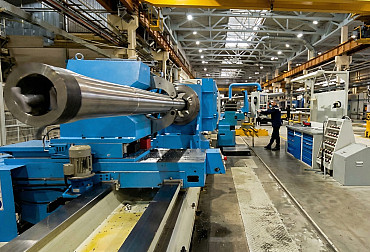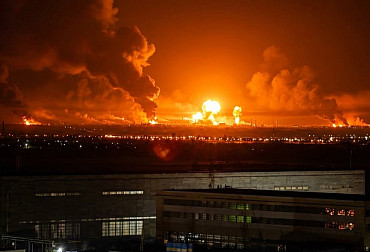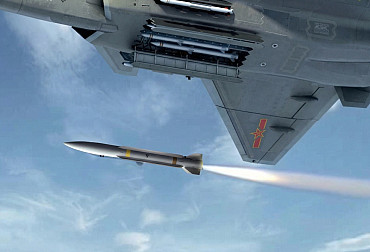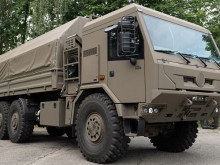Towards European space sovereignty: The Airbus–Thales–Leonardo merger and Czech industrial participation
The merger of Airbus, Thales, and Leonardo represents one of the biggest moves in the European space industry in the last decade. By combining their space divisions, they create a new conglomerate with an annual turnover of around €6.5 billion and approximately 25,000 employees, making it the European champion in satellite and navigation systems. This move is not just an economic maneuver but above all a strategic response to global developments in the form of the dominance of the American company SpaceX and the growing ambitions of China. Europe is trying to regain control of its position in space, which is becoming one of the most important domains for communication, intelligence, and military control. At the same time, the merger signals a shift towards a more integrated European defense and an industrial model that may determine the shape of European technological autonomy in the coming years.

The long-standing fragmentation of Europe, where each country developed its own satellite technology, is coming to an end. The new venture builds on the successful consolidation model of MBDA in the field of guided missiles and aims to ensure that Europeans are able to compete with American and Chinese companies. The merger is expected to be completed by 2027. The joint venture will focus on satellite manufacturing, ground systems development, navigation infrastructure, and intelligence services. The 35% share for Airbus and 32.5% for Thales and Leonardo will ensure balance and prevent the dominance of any one partner.
This transaction is important for Czechia in terms of its integration into the European technological ecosystem. The Czech Republic, a member of the European Space Agency (ESA) since 2008 and home to the EU Agency for the Space Programme (EUSPA) since 2010, is now the administrative center of European space policy. Czech companies such as SAB Aerospace, Frentech Aerospace, Aerotech Czech, MCE Slaný, and UNEX Uničov are already cooperating with major regional players (e.g., Airbus on Ariane 6 launch vehicles and Copernicus satellites). This cooperation pays off economically: according to the Aspen Institute think tank, every euro invested in the space industry brings another two to five euros to the domestic economy.
The Airbus–Thales–Leonardo consolidation could further strengthen this positive trend. If a single industrial partner capable of implementing projects such as IRIS² (a secure satellite communication system with 290 satellites) is created, this will offer smaller member states the opportunity to enter a new supply chain. Czech companies specialize mainly in optics, mechanics, data processing, and miniaturization of satellite components, which the European conglomerate will certainly need. The example of the Czech satellite SATurnin-1, launched into orbit in January 2025, demonstrates the ability of domestic industry to develop cutting-edge exploration systems independent of non-European technologies.
From a military-strategic point of view, the merger means a strengthening of European sovereignty. Space has become NATO's fifth operational domain, on par with land, sea, air, and cyberspace. Satellite systems today determine the effectiveness of command, control, and early warning capabilities. In 2018, the Czech Republic therefore opened the Military Intelligence Satellite Center, which uses satellite data for the armed forces, crisis management, and civil protection. The expanding European space industry offers an environment where Czech defense capabilities can be further developed through direct participation in ESA and NATO programs.
At the same time, however, it is necessary to recognize the risks of centralization. While the technological and economic synergies cannot be overlooked, decision-making power will continue to be concentrated in Western European countries. Smaller member states (the Czech Republic, Hungary, Slovakia, and the Baltic countries) may have limited influence on industrial priorities, research direction, or the allocation of contracts. This is reminiscent of the situation in the Airbus consortium, where key investment decisions are made in France and Germany.
Moreover, the merger is not only a technical but also a geopolitical act. At a time when the United States, through Starlink, de facto controls a significant part of the global orbital infrastructure and China is preparing its own mega-constellation, the European space conglomerate represents an attempt to gain strategic independence. In practice, this means the ability to develop and operate its own satellite networks without dependence on American or Chinese providers. The European Commission supports this direction through investment incentives and new funds in which Czech entities can also participate. The Czech share in these initiatives depends on the industry's ability to offer cutting-edge components and research capacity, for example in the field of artificial intelligence for satellite data processing (one of the specializations of the domestic VZLU Aerospace).
In addition to direct economic effects, the creation of a European space champion has a broader impact on European planning for future capabilities. The merger of the three largest players creates a unified framework for future defense projects in the field of C4ISR (Command, Control, Communications, Computers, Intelligence, Surveillance, and Reconnaissance). This will enable better coordination of development between the civil and military sectors and pave the way for the interconnection of European satellites with modern NATO command systems. The Czech Armed Forces, which in recent years have focused on the integration of modern communication and reconnaissance capabilities, can benefit from this in the context of alliance projects for the sharing of satellite data.
Last but not least, consolidation also affects the academic and research spheres. Technical universities (ČVUT, VUT Brno, and the University of Defense) are already collaborating on ESA and EUSPA projects in the fields of satellite navigation, optics, and cyber security. The newly formed company is likely to create an open framework for further cooperation with universities and start-ups. For Czech researchers, this means an opportunity to participate in international projects with tangible technological outputs. This integration into the European Research Area could also accelerate the Czech economy's transition to high-tech innovation and reduce its dependence on "assembly plants."
Investments in space technologies can also play an important role in the context of increasing defense spending by NATO members. The Czech Republic has so far invested only a fraction of its defense budget in space, but the country's new political leadership may change this. If Prague actively exploits its links with the new European space giant, it has a chance to become an important link in the development of communication and reconnaissance systems for both ESA and NATO missions. Prague may justify contracts for domestic space companies as part of defense spending.
The Airbus–Thales–Leonardo merger represents a fundamental shift in European space architecture. It strengthens the continent's technological self-sufficiency and creates space for the interconnection of civil, commercial, and defense initiatives. For the Czech Republic, this means new opportunities for industrial cooperation, greater prestige, and the possibility of helping to determine European priorities in the field of space. At the same time, however, it will be necessary to ensure that decision-making mechanisms are not confined solely to the "big three." The success of Czech involvement depends on the ability of the government, industry, and science to act in a coordinated manner, to connect their interests, and to support contracts for domestic industry. If this succeeds, the Czech footprint in space symbolized by the SATurnin-1 satellite could herald a new era in which Czech technology becomes an integral part of the new European defense and space infrastructure.



















